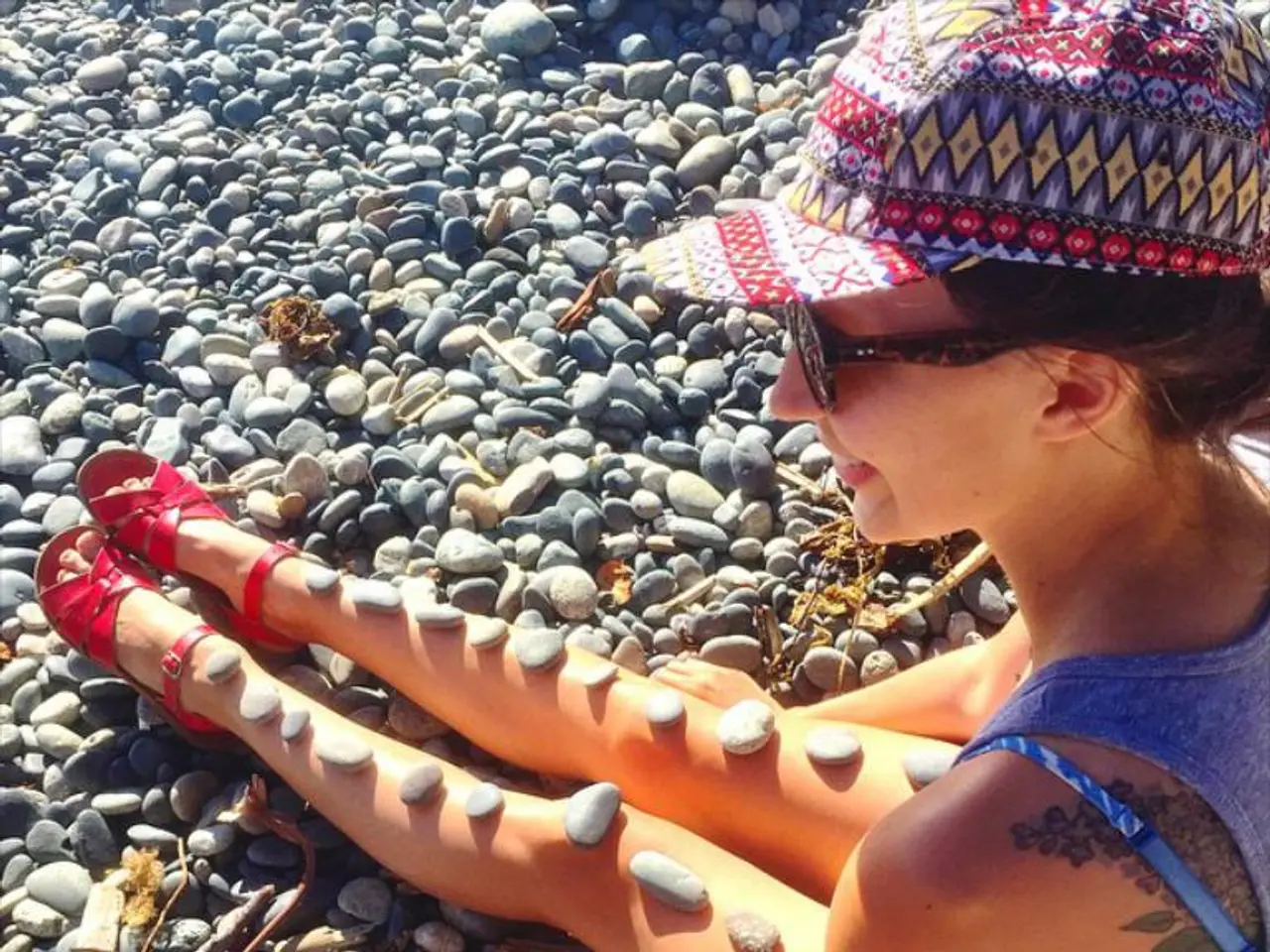Kidney Stone Ailment: Home Remedies, Predisposing Factors, and Timing Medical Attention Required
In the United States, approximately 10% of adults are affected by kidney stones, with males being more susceptible than females. These hard deposits, which form in the kidneys and travel through the urinary tract, can cause severe pain and require immediate medical attention if they become stuck or damage the urinary tissues.
Fortunately, there are several home remedies and lifestyle changes that can help manage kidney stone pain and prevent their development. One of the most effective strategies involves hydration, dietary changes, and the use of specific natural substances.
Staying well-hydrated is crucial, as drinking plenty of fluids, especially water, helps dilute minerals in urine, preventing stone formation and aiding in passing small stones. Aim for 2–3 liters (8–12 cups) daily, adjusting for heat or activity. Urine should be pale yellow to indicate good hydration.
Citrus fruits, rich in citrate, which binds to calcium and prevents stone formation, are another helpful remedy. Drinking lemon water (½ lemon squeezed into a glass of water daily) may also help break down small stones.
Basil, with its acetic acid and antioxidants, can dissolve kidney stones and reduce pain and inflammation. Fresh basil juice or basil tea can be consumed daily for kidney support.
A traditional remedy is mixing ¼ cup lemon juice and ¼ cup olive oil, followed by plenty of water. This concoction is said to lubricate the urinary tract and ease stone passage.
To reduce the risk of kidney stones, it's essential to avoid high-oxalate foods like spinach, nuts, beets, rhubarb, and chocolate. Limiting these foods, particularly for those at risk of calcium-oxalate stones, can significantly reduce the risk.
Reducing salt and animal protein intake is also beneficial, as high sodium increases calcium in urine, promoting stones, and animal proteins like red meat, eggs, and shellfish can lead to uric acid stones.
Maintaining a diet adequate in dietary calcium from food sources is essential, as calcium binds to oxalates in the intestines and prevents their absorption, reducing stone risk. However, calcium supplements should be avoided unless prescribed.
For pain relief at home, applying heat to the affected area or taking a warm bath can ease discomfort. Light physical activity may also help stones pass more quickly and relieve pain.
However, persistent or severe symptoms require medical attention. Always seek urgent care if experiencing intense pain, fever, vomiting, difficulty urinating, or significant blood in urine.
Managing weight is crucial for the prevention and treatment of kidney stones. A study of 146 people with recurring kidney stones found that 43.8% had obesity or overweight. Consuming apple cider vinegar may help dissolve calcium deposits, as a study of over 9,000 people found those who consumed vinegar had a significantly lower risk of kidney stones.
In summary, natural remedies and lifestyle strategies can be effective for small stones and mild pain, but persistent or severe symptoms require medical attention. By staying hydrated, making dietary changes, and incorporating natural substances, individuals can take proactive steps towards managing and preventing kidney stones.
- Drinking plenty of fluids, especially water, is crucial for managing kidney stone pain and preventing their development, aiming for 2–3 liters (8–12 cups) daily.
- Citrus fruits, rich in citrate, can help prevent stone formation and may help break down small stones when consumed regularly, such as drinking lemon water daily.
- Basil, with its acetic acid and antioxidants, can dissolve kidney stones, reduce pain, and inflammation, and can be consumed as basil juice or basil tea for kidney support.
- To reduce the risk of kidney stones, individuals should limit high-oxalate foods like spinach, nuts, beets, rhubarb, and chocolate, particularly for those at risk of calcium-oxalate stones, and avoid high-salt and animal protein intake, as both factors can promote stone formation.




